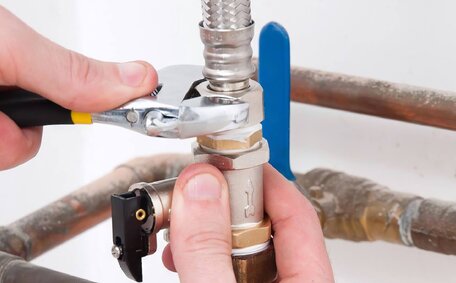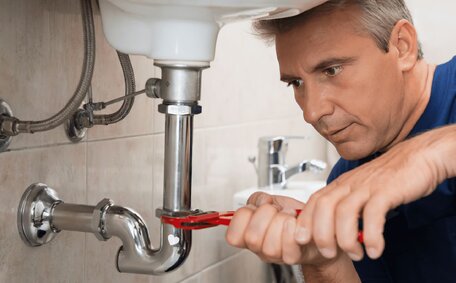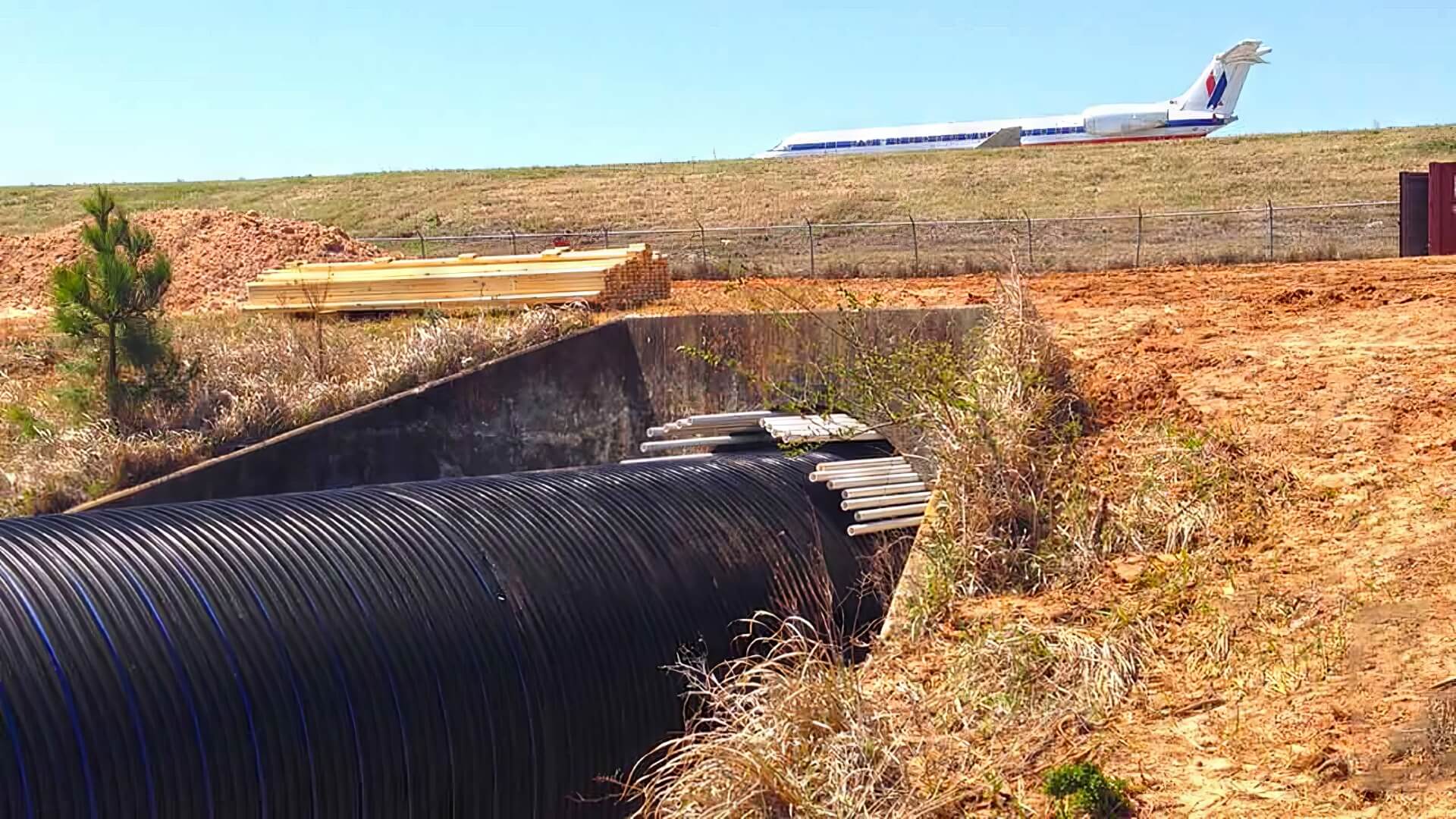
Is a broken tap an emergency?
A broken tap that is causing flooding, water wastage or damage should be treated as a plumbing emergency. Call our 24/7 emergency plumbers for prompt repairs to burst pipes, damaged taps, water leaks and more.
Read MoreNorth Ryde residents, aiming to save on costs and minimise environmental harm, face a critical choice between gas and electric appliances. Amid escalating energy expenses, it’s essential to grasp the long-term cost-benefit analysis of maintaining a natural gas connection versus electricity.
Traditionally, gas has been the economical choice for major appliances — including hot water systems and stoves — but fluctuating prices and advancements in electric appliances such as heat pump technology warrant a fresh comparison of energy plans.
Gas is frequently less costly in terms of upfront equipment and installation, with gas furnaces being a prime example of this cost difference.
Key factors to compare are efficiency, operating costs, and emissions. But it’s astute to compare energy costs because gas remains cheaper to operate in certain instances when considering the long term perspective.
Despite the steeper initial outlays, new efficient electric appliances ultimately conserve funds, champion renewable energy uptake and emit fewer greenhouse gases.
With thoughtful planning and comprehensive energy audits, energy mix in your home can reap benefits beyond savings by closely evaluating which strategy is best suited to your lifestyle. Understanding the evaluating gas vs electric can steer households to wiser energy decisions, pinpointing the best choice for individual needs.
When comparing costs, weighing the immediate and ongoing expenses of gas and electric appliances is mandatory.
Gas appliances, despite potentially higher fuel usage, often come with lower initial purchase and setup costs than electric alternatives. However, recent escalations in gas prices are adding much more to your typical household’s bill. Meanwhile, advances in heat pump technologies are pivotal in the ongoing gas vs electric cost-effectiveness debate, with electric becoming more affordable to run and possibly reducing your gas bill.
Efficient electric heat pumps for water heating have a unit operating cost around 18 cents per kWh, while gas water heating costs 1.5 to 2 cents per MJ, which is approximately 42 cents per kWh when converted.
So while gas water heaters are cheaper to install, electric hot water heating pumps have lower running costs that provide savings over time. In the debate of electric heat vs gas, Heat pumps can also achieve efficiencies of over 300% by harnessing renewable heat from the air.
Similar cost differences apply for appliances, with electric options showing significant savings on energy usage and lower gas running costs in the contest of gas heat vs electric. Electric induction cooktops have lower operating expenses than gas cooktops. Ducted electric reverse cycle systems can compete with gas central heating systems on running costs and operating expenses.
Analysing purchase prices against predicted long-term operating expenses, spanning 5-10 years, is key to choosing cost-effective appliances, gas dryers included, in the gas vs electric debate.
Gas appliances remain common in many North Ryde households for cooking, providing hot water, and to efficiently heat your home’s water supply. Some popular gas appliances found in local homes are:
Gas appliances are often gas cheaper than electric to install upfront, with basic gas hot water systems starting from around $1,000. However, it’s essential to factor in ongoing costs like annual servicing for gas boilers, which can amount to approximately $150-$350 per year.
Using gas currently holds an edge in operating costs for cooking and providing hot water compared to electricity, amounting in most cases, to about 7-15 cents per hour for the average gas stove. But with gas historically being more expensive than electric, induction cooktops are becoming competitive as electricity prices decline.
For your heating needs at home, new efficient electric reverse cycle systems present strong competition to the traditional storage heaters running on gas. Taking into account the gas cost, heating represents 1.5-2 cents per MJ, or about 42 cents per kWh. Compare this to reverse cycle heating running at 18 cents per kWh.
Although gas appliances may offer upfront savings, the gap is closing due to efficient electric alternatives. A cost comparison becomes more nuanced, and households can make more economical appliance choices through careful planning and obtaining several quotes.
Electric appliances offer North Ryde residents versatile and efficient options for meeting home energy needs, which is also worth considering for those aiming to reduce their carbon footprint. Popular electric appliances include:
While electric appliances typically cost more upfront, the longevity and lower maintenance of a gas hot water system can offset these expenses. Operating costs are competitive or lower than gas since recent wholesale electricity price drops.
An efficient electric heat pump for hot water incurs around 18 cents per kWh to operate, a noteworthy saving compared to a gas system’s 42 cents per kWh. Moreover, induction cooktops, aided by electric storage measures, incur less than the typical 7-15 cents per hour cost of using gas.
Electric appliances avoid annual servicing costs, produce no on-site emissions, and harness the rising potential of solar energy when homeowners integrate rooftop solar systems as part of their energy plans. With thoughtful upfront planning, efficient electric appliances are a smart long-term investment for North Ryde homes looking to save money and reduce their carbon footprint.
And
Innovations like self-cleaning ovens and wi-fi connected 'smart’ electric appliances boost convenience and potential cost savings, further enhanced by solar PV systems enabling operation on sustainable energy.
Although initial costs are higher, modern electric appliances have become competitive in running expenses due to significant efficiency gains, often offering greater overall savings over a decade or more. For environmentally conscientious homes seeking cost savings, these appliances are an increasingly attractive option.
And
Electric appliances like heat pumps and induction cooktops efficiently convert over 90% of energy into heat without solar input, outstripping the typical 40-60% efficiency of gas appliances and highlighting the superior efficiency advantage of electric models.
Furthermore, electric appliances produce fewer greenhouse emissions directly. Gas combustion leads to nearly 1 kg of CO2 per kWh when burned, often excluding the hazardous threat of carbon monoxide, while South Australia’s grid electricity averages around 0.4 kg CO2 per kWh.
Going electric avoids gas leaks from stoves or furnaces which contribute to indoor and outdoor air pollution. And with solar panels competing in the gas vs electricity landscape, efficient electric appliances can run on clean, renewable energy.
Making a transition away from fossil fuels does require an upfront investment, but efficient electric appliances save money long-term while aiding households in reducing their carbon footprint. For North Ryde homes concerned about costs and the environment, high quality electric appliances are an increasingly smart choice.
A home energy audit, costing typically $250-$500, assesses insulation, air leakage, and appliance efficiency, using tools like blower door tests to identify energy waste and recommending upgrades for considerable yearly savings.
Rooftop solar panels harness solar energy to power appliances during the day, significantly reducing grid electricity dependence. With sufficient panel capacity, efficient electric appliances can operate largely on solar power, diminishing gas reliance. In North Ryde, solar PV systems have attractive payback periods of 4-7 years, thanks to incentives.
Simple upgrades like extra insulation, double-glazed windows, LED lighting, and ceiling fans improve the efficiency of your energy consumption at home. Substituting aged appliances with new Energy Star-rated models diminishes both electricity and gas consumption. And make sure to install zone heating allows targeted temperature control to save energy.
With upfront planning and upgrades, North Ryde households can reduce energy waste, cut power bills, and make informed choices between gas and electric appliances.
Federal rebates offer up to $1000 for installing high-efficiency electric heat pumps for water or space heating/cooling, with additional rebates of up to $200 for eligible high-efficiency electric appliances.
In NSW, the Empowering Homes program offers interest-free loans of up to $14,000 for high-efficiency appliances like induction stoves, and the Advanced Energy Upgrade provides rebates up to $840 for replacing gas appliances with electric alternatives.
NSW solar feed-in tariffs pay eligible households for excess power exported back to the grid from rooftop solar panels. This can offset the cost of running efficient electric appliances and make them even more cost-effective.
Leveraging these incentives and rebates can help North Ryde residents cost-justify the switch to electric appliances that save money and reduce greenhouse gas emissions over time.
Federal rebates offer up to $1000 for installing high-efficiency electric heat pumps for water or space heating/cooling, with additional rebates of up to $200 for eligible high-efficiency electric appliances.
For North Ryde residents concerned about saving money and reducing their environmental footprint, the switch from natural gas appliances to high quality electric options makes sense both today and for future-proofing their home energy needs.
For tailored advice on optimal electric appliance options, reach out to North Ryde Plumbing at 1300 349 338 or [email protected]. With our expertise, you can make smarter, more economical choices for your home’s electric future.
A broken tap that is causing flooding, water wastage or damage should be treated as a plumbing emergency. Call our 24/7 emergency plumbers for prompt repairs to burst pipes, damaged taps, water leaks and more.
Read MoreBurst pipes, blocked toilets, sewer backups and lack of hot water are among the most common residential plumbing emergencies that require urgent attention from a professional plumber. If you experience any of these issues, call our 24/7 North Ryde emergency plumbers right away for fast, reliable service.
Read MoreTo determine if a relined pipe meets safety standards, professionals use equipment like CCTV cameras and hydrostatic pressure tests. Relining pipes is an affordable, non-invasive alternative to full replacement that can extend pipe lifespan 50+ years if done properly.
Read MoreNorth Ryde, 2113 NSW
We will call back as soon as possible.




